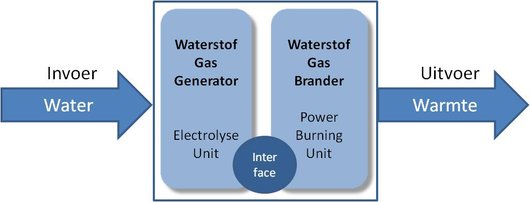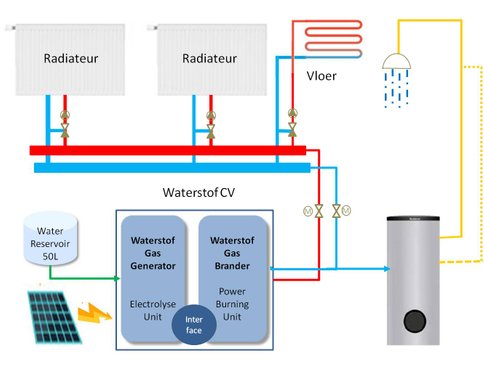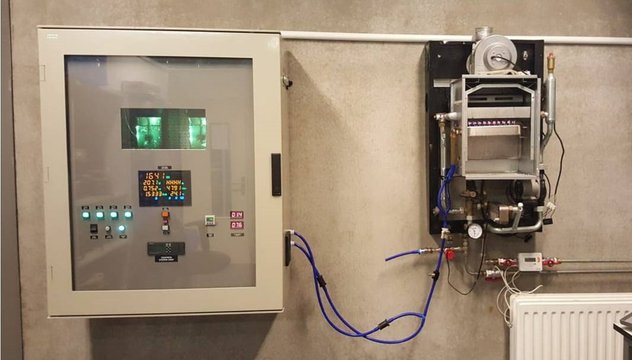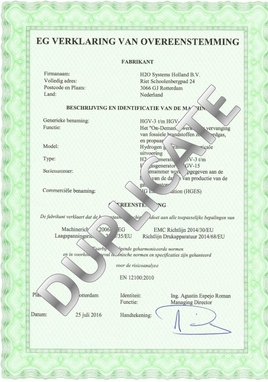Francis Bacon.
He who makes the quickest, coolest prototypes reigns!
Tom Peters
The H2O Systems Holland hydrogen heating systems generate ‘heat from water’ and simultaneously qualify the fossil fueled systems to become obsolete. The new systems produce hydrogen from distilled water by electrolysis. Hydrogen will be the future generator of heat to warm both houses and tap water.
The H2O Systems Holland hydrogen heating systems generate ‘heat from water’ and simultaneously qualify the fossil fueled systems to become obsolete.
The new systems produce hydrogen from distilled water by electrolysis. Hydrogen will be the future generator of heat to warm both houses and tap water.

The headlines of the system are simple. However, the technique behind the headlines is complex. The system’s exterior shows similarities with the classic natural gas system. The operations are identical. The only similarity is that both systems operate on gas: natural gas (mainly methane) or hydrogen gas. The differences are numerous.
The natural gas systems demands gas supply from the outside by pipeline, which is provided by the state grid operator. The natural gas system not only demands supply but also requires draining pipelines and chimneys. Natural gas systems produce emissions like carbon dioxide (CO2) and other damaging gases.
The hydrogen heating system produces its own fuel (hydrogen = energy) in order to provide heat.
'In House' Central Haeting Grid
In many ways, the hydrogen system is unique. Chapter ‘Systems’ describes the production methods and indicates the transitional losses of energy that the system causes. The H2O systems are closed systems and do not produce any kind of emission. As a result, no facilities are required to drain emissions that no longer exist. The electricity to operate the system will ideally be provided by solar panels. If this is not possible, the national grid with gray/green electricity may be the solution.
The system is attached to the internal home heating network and fully replaces the classic natural gas system. A hot water boiler may possibly be connected to the internal network in order to make hot water available more quickly.


The available hydrogen system prototype will be used for demonstrations, testing and fine tuning. Finally, the full system, with the ‘Hydrogen Gas Generator’ on the left and the ‘Hydrogen Gas Burner’ on the right, is going to be certified.
Certificate
The Hydrogen Gas Generator already has earned the EU (European Union) certificate. The system has cum laude passed all tests regarding sustainability, reliability and safety. The modified gas burner is currently the subject of continued design and further development. Hydrogen possesses particular burning characteristics. Different materials and coatings need to be tested in order to determine which ones can handle the extreme temperatures that occur when burning hydrogen.
